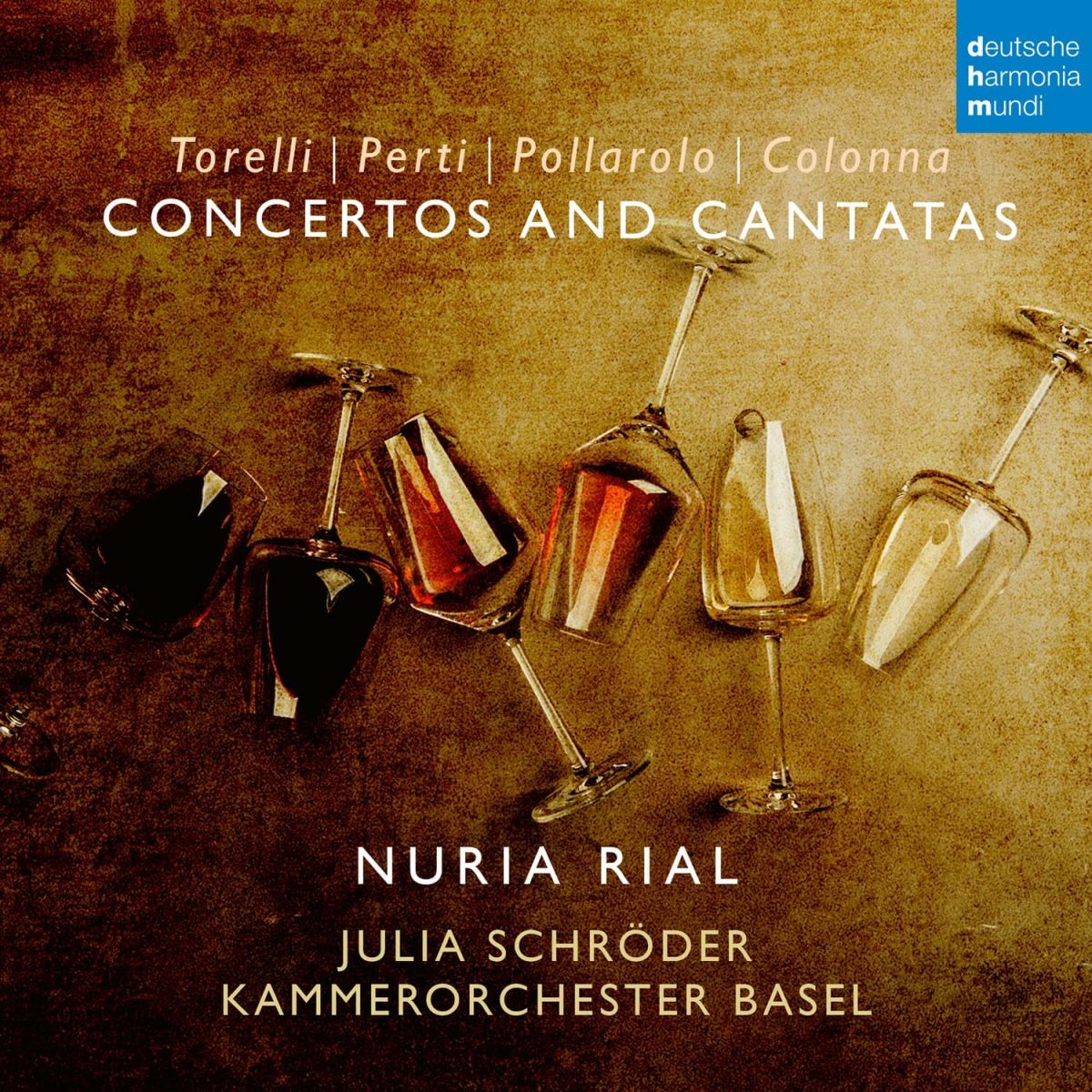Nuria Rial soprano, Kammerorchester Basel directed by Julia Schröder violin
57:29
DHM 19658813432
‘For the most part, nothing can be heard in their [the Italians’] music apart from a consistently elaborated basso continuo, often consisting of a kind of barrage of chords, with arpeggios added to throw dust in the eyes of those who are no judges of such things’. What was true for the Mercure galant in 1713 is equally as true of the 2020s, with the exception that the contagion is now widely spread throughout early music and not just applicable solely to the Italians. I’ve opened in this rather unusual way to highlight that the present recording provides one of the most severe examples of theorbo-itis I’ve encountered, with inappropriate twanging, passaggi, bangs, and arpeggiated janglings throughout the performances. Especially damaging examples appear in ‘Aurae sacrae amati ardores’, a charming solo motet by Pollarolo (c. 1653-1723). Both its arias (it ends in typical motet-fashion with a virtuosic Alleluia) feature lovely cantabile writing for the soloist, here the lovely warm, but pure voice of the enchanting Spanish soprano, Nuria Rial. Both however are virtually ruined by the distraction of the theorbist, who seems unaware that the arias are intended to evoke tranquility and contemplation by twanging away as if playing a concerto, masking the lyrical line of Rial’s voice. The result sounds ridiculous and is totally unmusical.
The foregoing would alone be enough to stop me wanting to hear the CD again, but given that the orchestral playing is excessively mannered there is little to attract any but the most tolerant of listeners. Allegros are invariably taken too fast, the performances skating over the surface with clipped chords and meaninglessly superficial runs. Slower movements are played in a mannered style in which I suppose some may find elements of sprezzatura and certainly there’s some virtuosic solo violin playing by director, Julia Schröder, though I don’t care much for her rather thin tone.
For those interested, that might be more forgiving than the present writer, a word or two about the programme. The instrumental part is devoted to four of the concertos from Torelli’s Concerti grossi, op 8. Composed in 1709, but only published posthumously, they are, like Corelli’s famous op 6 of five years later, intended to make a grand sonorous effect, with the body of concertante strings creating breadth and depth. That doesn’t happen here because of the clipped phrasing and the solo contribution being dominated by the solo violin. The other vocal solo items sung by Rial are a brief scena comprising a fluid alternation of air and recitar cantando from Giovanni Colonna’s oratorio Salomone amante (Bologna, 1679) and a spirited cantata, ‘San Tomaso d’Aquino’ by Giovanni Perti (1661-1756). In these, there is some enchanting singing. Rial demonstrates not only lovely cantabile lines but impressive agility in passaggi and ornamentation, though regrettably she has no trill and her words might have been projected with greater clarity.
Sadly for all the quality of the singing the disc is a non-starter for the reasons given above. A pity given that the repertoire is unusual and of considerable interest.
Brian Robins
